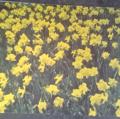Stephanie Jane recenzis The Pianist Of Yarmouk de Aeham Ahmad
A harrowing memoir
4 steloj
The Pianist Of Yarmouk is the second memoir I have read in the past year that profoundly illustrates the desperate situation being fled by Syrian refugees and displaced persons. Perhaps this book didn't have quite the emotional impact of the previous memoir, Butterfly by Yusra Mardini, but it is still a powerful and moving account. Ahmad talks of his childhood, growing up primarily under the care of his blind Palestinian refugee father who was the inspiration for his musicality. We learn of their struggle for Ahmad to be accepted into the rich people's world of music schools and the conservatoire, and then of how frighteningly swift and easy it was for their successful musical instrument shop business to be lost in someone else's war. I didn't know that Yarmouk is (or, now, was) a refugee camp for Palestinians displaced by the Israeli state. Many have been there for decades, unable …
The Pianist Of Yarmouk is the second memoir I have read in the past year that profoundly illustrates the desperate situation being fled by Syrian refugees and displaced persons. Perhaps this book didn't have quite the emotional impact of the previous memoir, Butterfly by Yusra Mardini, but it is still a powerful and moving account. Ahmad talks of his childhood, growing up primarily under the care of his blind Palestinian refugee father who was the inspiration for his musicality. We learn of their struggle for Ahmad to be accepted into the rich people's world of music schools and the conservatoire, and then of how frighteningly swift and easy it was for their successful musical instrument shop business to be lost in someone else's war. I didn't know that Yarmouk is (or, now, was) a refugee camp for Palestinians displaced by the Israeli state. Many have been there for decades, unable to return to their Palestinian homes. They resolutely remained neutral at the start of Assad's war, but were apparently still ideal scapegoats.
Ahmad's descriptions of life under siege are understandably harrowing to read. Even with the respite of his music, I could feel how much risking one's life every day just to find a little food or drinking water took its toll on everyone in the family. The complete change from relative affluence to total destitution is difficult to comprehend, especially at the speed with which it happened in Syria. The impression we in Britain are given of the refugees who actually make it to the EU borders doesn't make any concessions for who these people Used To Be. There is no recognition of their skills and talents. I was interested to notice that both The Pianist Of Yarmouk and Butterfly were first published in Germany where there is an active and successful refugee integration programme. Ahmad and his family have benefitted from this foresight and I appreciate this opportunity to have learned his story because of it.

